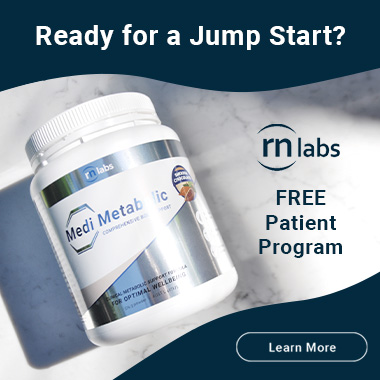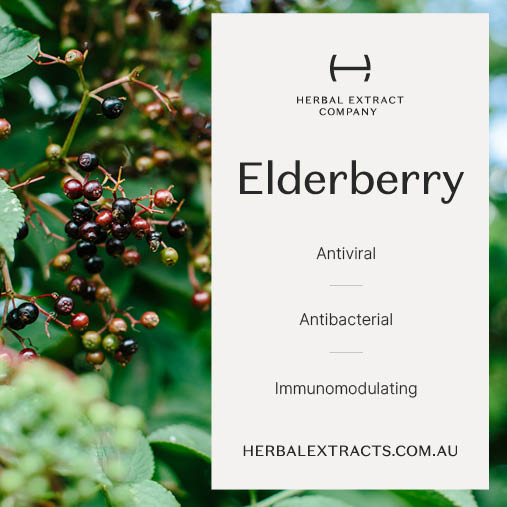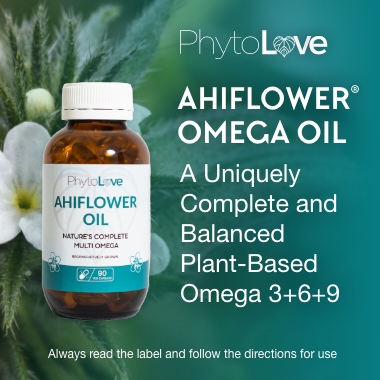Volume 32 Issue 4
Person-centred decisions in herbal and naturopathic practice and Editorial Board update
Susan Arentz
For referencing Arentz S. Person-centred decisions in herbal and naturopathic practice and Editorial Board update. The Australian Journal of Herbal and Naturopathic Medicine 2020;32(4):136-137.
DOI https://doi.org/10.33235/ajhnm.32.4.136-137
Western herbalism has remained relatively stable in terms of materia medica and overarching practice approaches since its use by European ancients. Twenty first century herbalists’ workarounds could be summed up by the saying ‘old herbs, new tricks’, with scope of changes being mainly about herbal selection, availability, preparations, validation, extraction methods and dosages1. Naturopathy, on the other hand, has undergone a type of recrafting in the 21st century, and a re-discovery of its original basis or identity. Naturopathy being defined by its treatment modalities (e.g. herbal medicine, nutrition, homoeopathy, counselling, massage etc) has moved on to a definition based on its holistic philosophy, and uniquely codified principles of practice2. Although the same modalities are applied, re-defining of practice has shifted the emphasis back to the individual needs of people seeking help.
This re-orientation re-positions people (patients) at the centre, with treatment modalities called upon when, and if, they are needed. Linking the patient to the treatment is the practitioner, who makes decisions and recommends the best approach to achieve health objectives. Pragmatic decisions ensure an appropriately mapped flexible treatment, adapted to meet individual health needs and expectations. Naturopathic practitioners play a fundamental role as they themselves, and the way they relate and communicate, can form a crucial part of treatment3. This re-orientation and re-positioning of people at the centre, theoretically places naturopathy at the forefront of holistic, person-centred care which, incidentally, is where all other health and medical practices are headed.
Like medical herbalism, many healthcare disciplines are coming from an intervention (modality) centred model, where practice and expertise are defined by the type of treatment. Other healthcare examples include pharmacy, physiotherapy, psychology and exercise physiology. The transition away from modality-centred to person-centred healthcare has been conceptually challenging for health disciplines with a history of education in vocational training sectors. Knowledge gained from vocational education is often focussed on developing clinical techniques, treatment approaches or protocols with modalities or treatments at the centre of decisions. From a historical perspective, this approach has been rationalised by the overall stability of pathogenesis, consistent signs and symptoms and treatment protocols that mechanistically intervene with disease processes. Although this way of thinking remains an important part of clinical care, social changes in the 21st century have given rise to considerable changes in the expectations of health consumers which have prompted adaptions to the way clinicians think4,5. In real clinical practice, people present with conditions of infinite variability, that overlap and interrelate, often simultaneous with several causes and exacerbating factors that involve whole-person physical, psychological, emotional and spiritual aspects as well as genetic, social and environmental determinants and risks6,7. Extra knowledge that builds upon the older ways of modality-centred thinking is required to fulfil expectations of person-centred care8,9. Acquiring extra knowledge for already established health practitioners can be an ominous proposition, particularly for those drawing to the end of their careers, and also for recent graduates at the beginning with exhausted financial resources.
The re-defining of naturopathy according to its philosophy and principles rather than by its treatment modalities has been a timely innovation that presents enormous opportunity – at least in theory. Naturopathy is at the forefront of holistic, person-centred care, bringing it into alignment with current public health strategies that focus re-orientation of health services towards populations and people, and partner with patients to achieve valued health outcomes10. From this perspective there are many clinical and public health needs that could be greatly met by naturopathy11. Although further learning may be needed to bring practitioners up to speed12, embedding genuine person-centred care as a hallmark of naturopathy is a worthwhile pursuit because, along with holism, person-centred care represents one of the greatest facilitators of integration into mainstream healthcare13 and a bright, prosperous and future-proofed pathway for herbal and naturopathic professions.
We have a highly qualified, passionate and committed editorial board here at the AJHNM. I’d like to take this opportunity to acknowledge their commitment and support. Together we have increased peer-reviewed submissions to the journal and facilitated the MACA mentorship program supporting four inexperienced authors with one-on-one tailored mentorship. The increasing volume has prompted an expansion of the editorial board and we welcome four new members who bring a wealth of experience and increased capacity. I’d also like to pay tribute to A/Professor Hans Wohlmuth who has stepped down from his editorial board position. Hans resigned after many years of contributing his renowned phytopharmaceutical expertise in his measured, precise and calm Belgium way. We will miss his steady hand here at the AJHNM. Following is a brief introduction to the new editorial board members.
We welcome our first US-based member of the editorial board, Dr Joshua Goldenberg, a naturopathic doctor based at the Helfgott Research Institute at the National University of Naturopathic Medicine in Oregon US and a visiting research scholar at the University of Technology in Sydney. Dr Goldenberg is a researcher, teacher, naturopathic doctor and founder of Dr. Journal Club. He is an active clinical researcher with numerous publications in high impact scientific journals (JAMA, Annals of Internal Medicine, etc). He has presented nationally and internationally on evidence-based medicine, probiotics and research methodology. In clinic, Dr Goldenberg focuses on integrative approaches to irritable bowel syndrome and other gastrointestinal complaints. Dr Goldenberg is a passionate educator of critical evaluation of the literature and evidence-informed practice. He is past adjunct faculty at Bastyr University, his alma mater, in which he enrolled after receiving honours and distinction in molecular biology from the University of Pennsylvania.
It is a pleasure to introduce you to Associate Professor Jennifer Hunter, an adjunct at NICM Health Research Institute, Western Sydney University and an integrative GP of 20+ years’ standing. Along with her medical degree, Jennifer has a Masters of Science in Public Health from the London School of Hygiene and Tropical Medicine and a Doctor of Philosophy from The University of Sydney. A/Professor Hunter has spearheaded several positive developments in traditional, complementary and integrative medicine policy and practice; she frequently collaborates with naturopaths and herbalists, most recently involving projects of inter-professional communication, clinical practice guidelines and evidence translation for zinc and honey in the pandemic. A/Professor Hunter chaired the first year of the NHMRC Natural Therapies Working Committee in 2020, overseeing an update of the evidence evaluations on the clinical effectiveness of naturopathy, Western herbal medicine and 14 other natural therapies. She is a member of the TGA Advisory Committee on Complementary Medicines, a board member of the International Society for Complementary and Integrative Medicine Research (ISCMR) and chair of the ISCMR Research Advisory Committee. Jennifer is an experienced reviewer who brings an acute intellect and uncompromisingly high standards to the editorial board. She is an inclusive and enthusiastic contributor who can support the advancement of the journal and naturopathy and western herbalism in Australia and New Zealand.
Next I introduce Dr Kate Templeman, a naturopathic health services and educational researcher with research interests in educational and curricula development and policy, translational research, and development of clinical services in primary care. Dr Templeman’s doctorate, awarded by Monash University in Melbourne, was the first in Australia to investigate integration of complementary medicine in undergraduate medical education, and her work continues to inform Australian medical and health education. Dr Templeman, based at the NICM Health Research Institute in Sydney, has actively contributed to complementary and integrative medicine education development for Australian general practitioners, defining qualities of traditional, complementary and integrative medicine (TCIM) for shared primary healthcare and in health models of cancer care, and translation of evidence-based TCIM to clinical practice. With roots in naturopathy, Dr Templeman strives to enhance foundations of holistic Western medicine, evidence-based practice, and developing research culture.
Finally the next new editorial board member needs minimal introduction as many already know Justin Sinclair. Justin is a naturopath and research fellow at NICM Health Research Institute (Western Sydney University) and is well known for his trailblazing work in researching cannabis in Australia and the United States for the last 15 years. Justin has lectured since 2003 across several undergraduate degrees, with his favourite subjects being botany, pharmacology and pharmacognosy. Key areas of his medicinal cannabis experience span several scientific disciplines, including botany, ethnopharmacology and cannabinoid phytochemistry. Mr Sinclair coordinates the Australian Medicinal Cannabis Research and Education Collaboration at NICM HRI and he also heads up the Scientific Advisory Board for United in Compassion, Australia’s leading medicinal cannabis advocacy group which was instrumental in lobbying for government regulatory change around medicinal cannabis. Justin is an NHAA Fellow and has been heavily involved in educating medical professionals, scientists and politicians about cannabis-based therapeutics and the endocannabinoid system over the last 5 years. His clinical interests include pain management, herb/drug/nutrient interactions and mental health, and he is currently investigating medicinal cannabis for endometriosis as a PhD candidate at Western Sydney University.
This issue contains a long-awaited systematic review of safety for herbal medicines containing arbutin, including information central to the TGA’s re-scheduling of these herbal medicines and returning access to herbalists and naturopaths. Congratulations to Laura Dwyer and Ian Breakspear for an excellent, translatable evidence synthesis. This issue includes a couple of international articles about the role of herbal medicine in the pandemic, a letter to the editor outlining the case for herbal medicine sachets in facemasks to improve air sterilisation and soothe respiratory systems, and a brief literature review of curcumin for covid-19. Also included is original research about the chemical validation of cytotoxic constituents of Alstonia sp.
Dr Wendy McLean has summarised the recently published evidence relevant to medical herbalism and naturopathy in MedPlant and MedJourn. Included are articles on saffron for PMS, a systematic review of valerian for improved sleep and Silybum marianum for menopausal hot flushes. Other clinical conditions include endometriosis, NALFD and obesity. Also included a review on Michael Thomsen’s ‘5th edition Phytotherapy Desk Reference’ already added to many wish lists this festive season, Enjoy.
Finally, I wish you and yours a joyous festive season, in safe proximity to family and friends ????. Many changes and challenges have been faced this year, and it will be interesting to see how these play out in the future, and the implications for Western herbal medicine and naturopathy, the broader healthcare system, and the global community.
Author(s)
Susan Arentz PhD, BHSc(Hons)
Editor, Australian Journal of Herbal and Naturopathic Medicine
PO Box 696, Ashfield, NSW 2131, Australia
editor.ajhnm@nhaa.org.au
References
- Francia S, Stobart A. Critical approaches to the history of Western herbal medicine: from classical antiquity to the early modern period. A&C Black; 2014.
- Lloyd I. Overview of the World Naturopathic Federation (WNF). Aust J Herbal Naturopathic Med 2018;30:58.
- Supper I, Catala O, Lustman M, Chemla C, Bourgueil Y, Letrilliart L. Interprofessional collaboration in primary health care: a review of facilitators and barriers perceived by involved actors. J Public Hlth 2015;37:716–27.
- Leach M, Jones M, Gillam M. The expressed demand for complementary medicine interventions and services in rural South Australia. Naturopaths and Herbalists Association of Australia Biennial Melbourne. Aust J Naturoapths Herbalists; 2019:19.
- Steel A, Rickwood C, Bradley R, Foley H, Harnett JE. Australian naturopaths’ approach to caring for people with cardiovascular disease and associated risk factors: a qualitative study of the providers’ perspective. J Alt Complement Med 2020;26:902–10.
- Vilcins D, Scarth P, Sly PD, Jagals P, Knibbs L, Baker P. The association of fractional cover, foliage projective cover and biodiversity with birthweight. Sci Total Environ 2020:143051.
- Galway LP, Beery T, Jones-Casey K, Tasala K. Mapping the solastalgia literature: a scoping review study. Int J Environ Res Public Hlth 2019;16:2662.
- Staun M, Bergström B, Wadensten B. Evaluation of a PBL strategy in clinical supervision of nursing students: patient-centred training in student-dedicated treatment rooms. Nurse Ed Today 2010;30:631–7.
- Hunter J, Liu J, Lee MS, Arentz S. Clinical practice guidelines: bridging traditional knowledge, scientific evidence and practice. Adv Integrative Med 2019;6:S24–S5.
- Sharma M. Theoretical foundations of health education and health promotion. Jones & Bartlett Publishers; 2016.
- Wardle J, Steel A, Casteleijn D, Bowman D. An evidence-based overview of naturopathic practice in Australia. Aust J Herbal Naturopathic Med 2019;31:9.
- Goldenberg JZ, Burlingham BS, Guiltinan J, Oberg EB. Shifting attitudes towards research and evidence-based medicine within the naturopathic medical community: the power of people, money and acceptance. Adv Integrative Med 2017;4:49–55.
- Templeman K, Robinson A. Integrative medicine models in contemporary primary health care. Complement Therap Med 2011;19:84–92.






